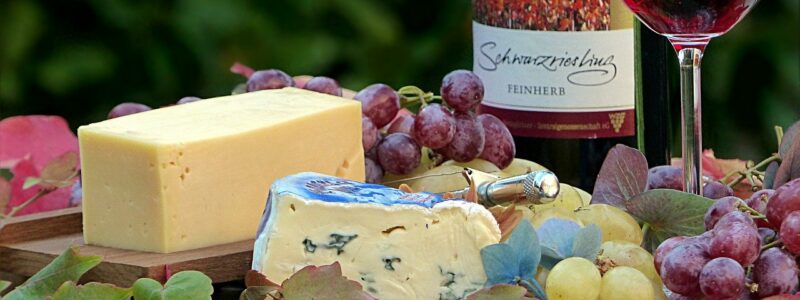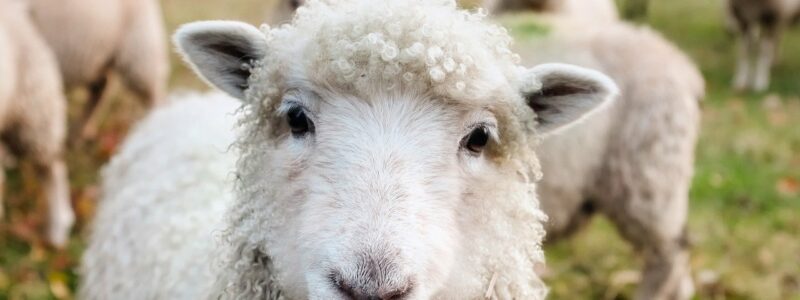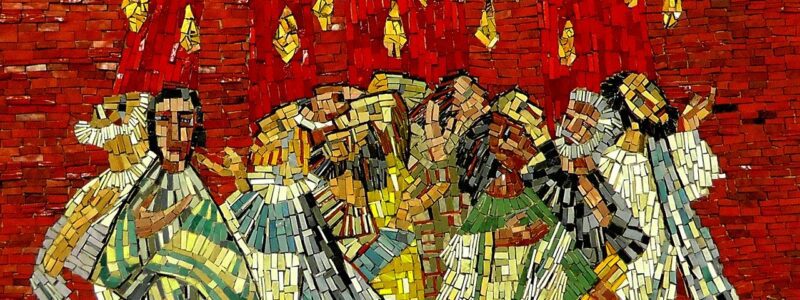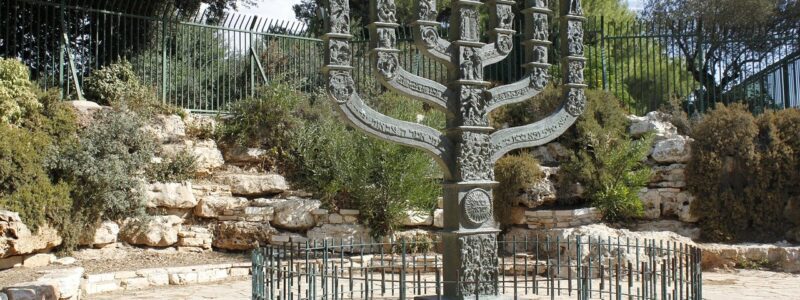First Fruits
The Jewish holy day of First Fruits is the third of the trio of festivals around the Passover. The Jewish calendar is set so that Nissan 14 always occurs on a full moon, and Passover always is celebrated on Nissan 14; that means there is always a full moon on Passover.
Something unusual happened with the Passover full moon on the day Christ was crucified that is very unusual; it rose in full blood red lunar eclipse. The symbolism could hardly be more striking. Jeff would learn about these things and many other facts as he continues on with his angelic lessons.
First Fruits
Jeff had been really affected by images of the death of Christ. He realized people have no understanding as to how the Messiah was treated by the Roman guards who hated everything Jewish. The guards hated being in the backwater Roman colony of Judea, they hated the Jews because they were hated in return. The Romans also hated being picked off one by one by the Zealots – a group of Jews anxious to get Rome out of Judea by force.
The Romans certainly hated this Jesus who was one of the Jewish leaders. They had no interest in Jewish politics or religious differences. They only knew they were free to do what they wanted with him – and they took advantage of that opportunity.
The Death Business
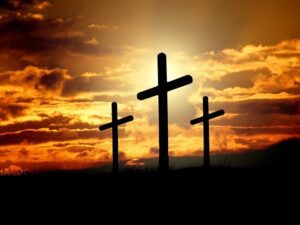
Image by Gerd Altmann from Pixabay
The Romans were very efficient in the death business. They had to be. If a condemned man survived a crucifixion, the guards would be up on a cross with him. They knew how to slowly kill people, and they would be sure the prisoners did not survive.
A crucifixion was used by the Romans as means of execution for two reasons. It severely punish the criminal but it also served as a deterrent for other potential criminals. The Romans used this cruel execution method to control a population who despised the Roman army occupation.
The condemned usually stayed on the cross until their bodies rotted and they fell to the ground in a maggot filled putrid mass of bloody bones. Stay dogs and scavenger birds would finish off whatever the maggots left behind.
The guards vaguely knew this was a “special day” for the hated Jews. Their superiors told the Roman executioners their victims had to be dead by nightfall. No problem. Some of the condemned would have their legs broken with a crurifragium – a kind of iron sledgehammer. Prisoners with broken legs could no longer lift themselves up to breathe and would perish in minutes rather than hours. They might also put a spear through the heart to ensure death in minutes. There was no mercy given.
Jeff Falls Back to Sleep
Despite all his voluntary protestations, Jeff eventually lost his battle with progressive somnolence and fell asleep. It is common for the sleep-deprived mind to nearly immediately enter into REM sleep – a phenomenon known colloquially as “REM rebound.” Not only does the dream state start early, but it is also often more consolidated and occupies a greater portion of the night’s sleep state.

Image by Wokandapix from Pixabay
Jeff was quickly aware of the return of his heavenly messenger. The room once again was filled with brilliant light shining at him from all directions; no shadow could be discerned anywhere. His angel seemed to be located in a particular spot among the light although his outline was blurred at best.
Nearly immediately, the angel began to speak.
“Son of Earth, please be still. We have much to discuss tonight. Over the past few nights, you have viewed circumstances surrounding the greatest gift that could ever be given – a gift of eternal life for anybody who would ask. And I see you have not yet asked.”
“No, angel. I just can’t accept all of this stuff just yet. It flies in the face of all I have believed my entire life. I always thought Christians were losers; poor pathetic people who were blinded by their superstitions. They always seemed to judgmental; so intolerant of anybody who didn’t believe just like they did. In the investment world – Christianity has a “branding problem.”
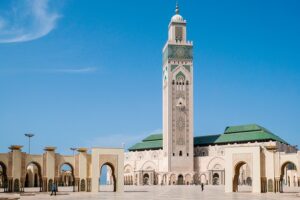
Mosque in Casablanca – Image by Hans-Juergen Weinhardt from Pixabay
“That may be, Son of Earth. But know this; your experiences here tonight are not unique. God is sending out angels throughout the world doing right what is happening right here. There are countless stories – particularly in the Islamic world – of Muslims being visited by angels – or the Savior himself, and turn from Islam to Christianity risking their lives and the lives of their family in the process.”
“I’ve heard a little bit about that – but that’s just stories. I’ve certainly never seen any of that. I think that’s just all propaganda churned out by churches trying to fill their empty pews. I am sure there are Christians who convert to Islam – you don’t want to talk about that, do you.’
Jeff hurled this insult to the angel hoping to get him upset or at least win an argument for once. Jeff always felt at a disadvantage trying to discuss religion and history with this angel.
“Know that it is true, Son of Earth. And know that these stories are well documented”.
“Whatever. I think I would have to talk to those people before I’d even begin to believe that nonsense. How do I know what you say is true – you expect me to trust you without verification?”
“If you look for them and ask questions, you would find them. It is hard to find something without looking for it, Son of Earth. Of course, you are expected to verify everything I am telling you. Information is much easier to find today than ever before in history. You do not have to go to a public library or seek our expert; you can just go into the internet and access the finest libraries in the world.”
However, we must night depart significantly from our itinerary tonight.”
“OK angel, let’s get on with it. I suppose I have no say in the matter.”
The Feast of First Fruits
“No, you do not, Son of Earth. I am tonight to discuss with you the third great feast called the Feast of First Fruits. Have you ever heard of this great Jewish Festival and do you understand its importance?”
“Nope, can’t say that I have!” Jeff hated being reminded of his ignorance about anything and was particularly annoyed he would have to listen to a lecture about something he could not care less about. Who cares about ancient superstitions and religious practices of an ancient civilization!

Barley – Image by PixelAnarchy from Pixabay
“I am not surprise – most Christians, even devoted, serious Christians, have never heard of the Feast of First Fruits. As with all the Jewish holidays, they have their origination in Scripture,”
Then the Lord spoke to Moses saying, ‘Speak to the sons of Israel and say to them, “When you enter the land which I am going to give to you and reap its harvest, then you shall bring in the sheaf of the firstfruits of your harvest to the priest. And he shall wave the sheaf before the Lord for you to be accepted; on the day after the Sabbath the priest shall wave it.’”[1]
“So what does all of that have to do with anything – especially me? I mean, I don’t think I have ever even seen a field of barley let alone harvest any!”
“Son of Earth, the importance is not about barley at all; but there are several things for you to notice. First, barley harvest in Israel occurs fairly early in the spring. It is a fast-growing crop and some can be harvested as early as the season of Passover. First Fruits occurred on the day after the weekly Sabbath during the week of the Feast of Unleavened Bread we just finished discussing.”
“OK, angel, this is all getting pretty confusing; can you summarize?”
“Passover is always during a full moon on Nisan 14 which is the time of the full moon; metaphorically the full moon lit the way for the Jewish people to escape from Egypt. During Passover, an unblemished lamb is sacrificed and eaten in every Jewish home; similarly on Passover, Christ – the Lamb of God – was sacrificed for us.”
“The Feast of Unleavened Bread started the next day on Nisan 15 and represents searching for the leavened bread – a metaphor for sinfulness in the believer’s life. When this sinfulness is found, it is metaphorically thrown away, buried just like Christ who became sin for mankind.
The Feast of First Fruits was celebrated on the first day after the first Sabbath during Unleavened Bread.”
“So I still don’t get the significance of this thing – first fruits! Why is it such a big deal? It seems just like a weird superstitious holiday practiced by a primitive culture.”
“Perhaps this will help. Paul wrote,
But now Christ has been raised from the dead, the firstfruits of those who are asleep. For since by a man came death, by a man came the resurrection of the dead. For as in Adam all die, even so in Christ shall all be made alive. But each in his own order; Christ the firstfruits, after that those who are Christ’s at his coming.[2]
“Also, we know that Christ rose from the dead on the day of the Feast of First Fruits, because the holiday always starts on Sunday, the day after the Saturday Sabbath,
But on the first day of the week, at early dawn, they came to the tome, bringing the spices which they had prepared. And they found the stone rolled away from the tomb, but when they entered, they did not find the body of the Lord Jesus.[3]
“OK, Angel – I kind of understand. What you are saying is that Christ was the first one resurrected and is the “first fruit” of his ministry; everybody else is to follow.”
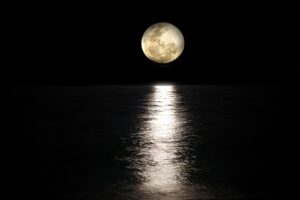
https://www.theatlantic.com/science/archive/2019/04/why-dont-easter-and-passover-always-line/587572/
“Yes, Son of Earth. And note this too; we know that Christ was crucified on the day when the Passover lambs were being slaughtered just before the Passover meal. Furthermore, we know that Passover is always on a full moon on Nisan 14; the only year in the right time-frame when all of this occurred was 33 AD.”
“During that year, Nisan 14 was on a Friday when Christ was killed like a lamb during Passover, Unleavened Bread started the next day on Nisan 15, and the first Sunday during Unleavened bread would be the next day, Sunday Nisan 16 when Christ was resurrected during First Fruits.
“OK, well that’s kind of neat.”
“Can you now see how the ancient Feasts of Israel during the Spring were representations or rehearsals for the first coming of Christ; but there is more.”
Rehearsals for the Coming of Christ
“More about what?”
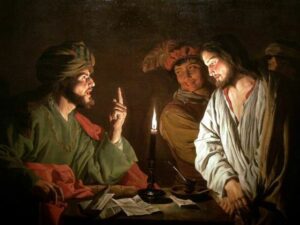
By Matthias Stom – http://picasaweb.google.com/lh/photo/NzGqkcNuqdnAaHyggbcCJw, Public Domain, Link
“Yes, Son of Earth. The Mishnah[4] – or oral traditions of the Jewish nation as recorded in the Talmud,[5] noted that at about the same time that Caiaphas the High Priest, was judging Christ – his servants were out in the barley fields judging which would be harvested for the first fruits ceremony. When the Roman soldiers were binding Christ for the crucifixion, the servants were finding up stalks of barley for the priests. But there is also an explanation for something few Christians understand.”
“Now you have me interested – I always like to understand things few others do!”
“It has to do with Mary Magdalene was at the garden tomb and saw the resurrected Christ, he tells her,
Touch me not; for I am not yet ascended to my Father; and to my God and you God.[6]
“Why, Son of Earth, did not the risen Lord wish to be touched? We know, for example, later on in the resurrection story, he was touched by Thomas – but why not by Mary?”
“Because she was a woman?”
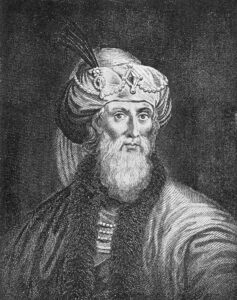
Josephus – By William Whiston (originally uploaded by The Man in Question on en.wikipedia.org) – https://sites.google.com/site/josephuspaneas/, Public Domain, Link
“No. The reason is given by the ancient Jewish historian Flavius Josephus concerning the barley harvest. Josephus explained that the Jews could not touch the barley harvest until the day of first fruits.[7] Once the barley sheaf was presented to God by the Priest, then the barley crop could be harvested for use. Since Christ was the First Fruits, he had to go to the Father before anybody could touch him. After Christ had been to the Father and back, he could then be touched. Scripture states,
Then He said to Thomas, ‘Reach here your finger, and see my hands, and reach here your hand, and put it into my side; and be not unbelieving, but believing.’”[8]
Until the barley sheaf or omer was harvested and offered in the temple, the rest of the crops were not deemed kosher or lawfully fit to be harvested and eaten. The barley in the field became kosher because of an offering that was made by the Jewish priests.
Similarly, we are made “kosher” or lawfully acceptable to God by what Christ has done for us. In other words, there was nothing the barley did to become acceptable; similarly, there is nothing we can do to become acceptable to God; Christ has done all the work.”
“So … “
“So the third major Feast called First Fruits projects a symbol of redemption. The Jews were being taught for hundreds of years that they are unable themselves to get right with God; however, through the sacrifice of a lamb during Passover and other teachings throughout the year, they were being taught about God’s forgiveness. Being faithful to God’s laws was the requirement for God’s salvation.”
“But what about this first fruits thing – I still don’t get it.”
“The three Jewish holidays we have examined so far are all symbolic of God’s plan of redemption for mankind. For the Jew, Passover meant getting out of Egypt where they were enslaved, symbolically meaning separating from a sinful world where we are enslaved to what is against God’s will.”
“You can either be a part of this world’s system or a part of God’s system – but you can’t be in both.[9] God expects your being willing to give up everything if needed to follow Christ; that is why he requires separation from the world. This does not mean becoming a hermit, but it does mean not being affected by the world’s system.”
“Know this also, Son of Earth. The Jews who were enslaved in Egypt could do nothing to escape their enslavement. Similarly, unredeemed people are enslaved to sin and can not free themselves. As Paul noted,
“But what does that mean for me, Angel; I am nor will I ever be a Jew.”
“It is important to remember, Son of Earth, that each of the Jewish feast days is also associated with a major Christian event; there are seven of these feast days throughout the year, each represented by a candle on the Jewish Menorah. The Jewish holidays were a rehearsal for a future important Christian historical event.”
“We have so far examined three of these days; Passover, Unleavened Bread, and now First Fruits. The Christian equivalent of Passover is the crucifixion of Christ. The Passover shows how God saved a chosen people out of Egypt; similarly, the crucifixion represents God again saving a chosen people from the world. As in the story of Ruth who was redeemed by Boaz, God redeemed us from the power of sin.”[10]. Ruth was from the cursed country of Moab and not able under her own power to a chosen Jewish person. She was redeemed or bought with a price by a prominent Jew named Boaz who was a relative of her ex-husband.
Redemption
The whole idea of “redemption” is somewhat foreign to many but it does have some parallel’s in our own society.
For example, if you have a large debt and your family member pays that debt, your debt is said to have been redeemed.
In a similar fashion, people have all sinned against God and have a sin debt that we are unable to pay; we are slaves to sin and unable to free ourselves from this slavery as we are inherently sinful. Christ paid our debt and redeemed from sin and makes us justified or righteous before God even though this side of eternity we are still sinful though hopefully becoming more like Christ as we move through life.
The benefits of being redeemed are beyond measure including eternal life, forgiveness, righteousness, delivered from the bondage to sin, at peace with God, adopted into God’s family, with indwelling by the Holy Spirit.
“OK, but what about the other two feast days?”
“To the Jew, the feast of unleavened bread represents constant self-examination to get sin – represented by leavened bread – out of their lives; any leavened bread that is found is burned or buried. Similarly, Christ – who became sin for us[11] and was buried.”
“OK, angel, I was wondering how you would get a Christian message from unleavened bread! The third spring feast day is more easily understood – First Fruits.”
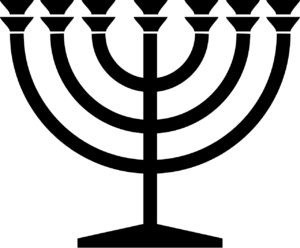
The seven candles of the Menorah symbolize the seven major Jewish feasts or festivals.
“Son of Earth, Christ was the first to conquer death in the resurrection; he illustrated for his followers they too will conquer death in a similar fashion.[12] While the Jews celebrate First Fruits, Christians celebrate the resurrection during Easter.[13] “
“The important idea to see here, Son of Earth, is that all of the seven major Jewish feasts exemplified by the seven candles in the Jewish Menorah have great meaning in themselves; however, they also have a deeper meaning as representing future events in the Christian church. The three feasts we have examined – Passover, Unleavened Bread, and First Fruits – all have their Christian meaning in Crucifixion, Burial, and Resurrection.”
“OK, angel, you said there are seven of these special Jewish feast days – and we have covered only three?”
“That is correct, Son of Earth – there are four more. Out of the seven, three occur in the Spring while three occur in the Fall. My time with you tonight is coming to a close; my next visitation will be a discussion about the fourth Jewish feast that is associated with the Christmas holiday of Pentecost.”
And with that, the angel slowly faded into the light, and the brilliant light gradually faded away. Jeff woke up in his bedroom and gradually became aware of his surroundings. It was still night, and only the dim light of a crescent moon illuminated his room. He lay there motionless, trying to make sense of all that was happening to him.”
Jeff had been in a Jewish synagogue once, for the marriage of one of his friends. During the ceremony, he had to wear one of those little hats – a yamake, which made him feel rather silly. But right up front in the synagogue was a Menorah. There were seven candles, and now he understood that each of those candles represented one of the major Jewish Feasts. But what he didn’t know until last night’s dream was that each of those candles also represented a major Christian holiday as well – the first three being Christ’s crucifixion or Good Friday, his burial, and Easter.
Jeff thought about all the Jewish friends he knew – a lot worked at the stock exchange or as brokers. Yet, none of them were particularly religious and none talked about his faith. He would have to ask them about some of the things the angel was telling them – maybe. Jeff also realized what few Christians learn; that there are intimate connections between their Christian faith and the Jewish religion. Of course, this should not be too surprising since Christ was – after all, a Jewish Rabbi. Still, this whole thing about the holidays – well, he would have to consider that another time.
Today was a workday and he would have to get ready for work. He was still considering trying to get together again with Shari – she was a good diversion if nothing else. There were some other girls at the office he would try to impress; some of them could certainly be a good substitute; something to take his mind off of these blasted angel dreams.
It was while Jeff was shaving that he noticed something different in his neck; a slight bump. He put down the razor, wiped off the shaving cream with a wet towel, and then carefully felt the lump’s outlines with his finger. It wasn’t particularly tender, but it was hard and he had definitely not noticed it before. Struggling not to be too alarmed, Jeff decided he would watch it over the next few days.
References
[4] http://www.myjewishlearning.com/texts/Rabbinics/Talmud/Mishnah.shtml
[5] Norten, Michael, pp. 42-43
[7] Josephus, Flavius, Antiquities of the Jews, 3 10.15 (But on the second day of unleavened bread, which is the sixteenth day of the month, they first partake of the fruits of the earth, for before that day they do not touch them” (Antiquities of the Jews 3.10.15)
[13] Of course, Easter is a pagan holiday which occurred at the same time as firstfruits in the Jewish calendar. As many converts came into Christianity from pagan lands, some pagan customs became adopted by the church – many of which are practiced today. Perhaps some of the best known pagan customs and symbols are associated with Easter including rabbits, eggs, and Easter ham. The origin of these pagan customs can be found at http://www.lasttrumpetministries.org/tracts/tract1.html


